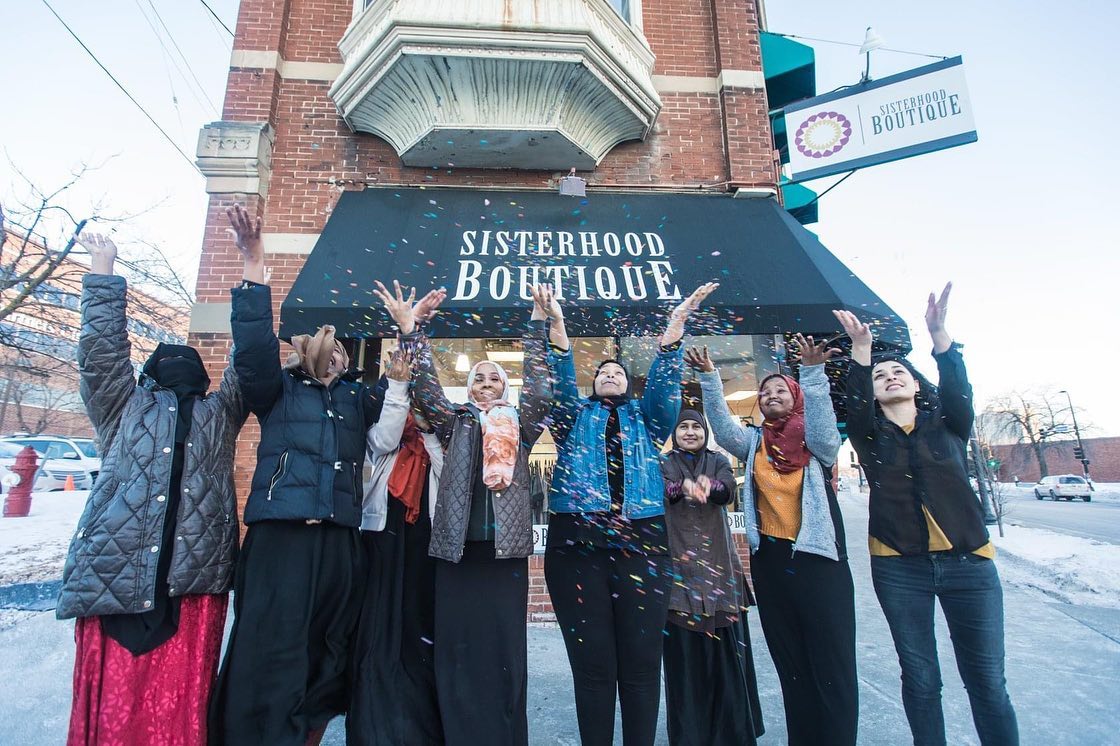
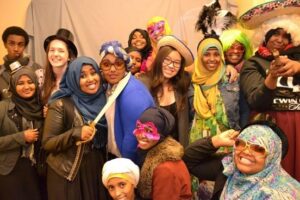
OUR MISSION: We encourage East African young women to connect and evolve as leaders and entrepreneurs by creating space to explore, express, and educate each other and their community. Because, we believe the future is for all women.
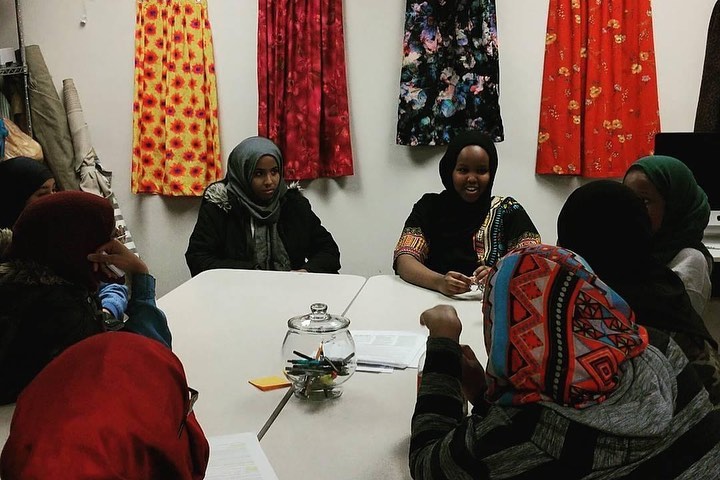


OUR MISSION: We encourage East African young women to connect and evolve as leaders and entrepreneurs by creating space to explore, express, and educate each other and their community. Because, we believe the future is for all women.

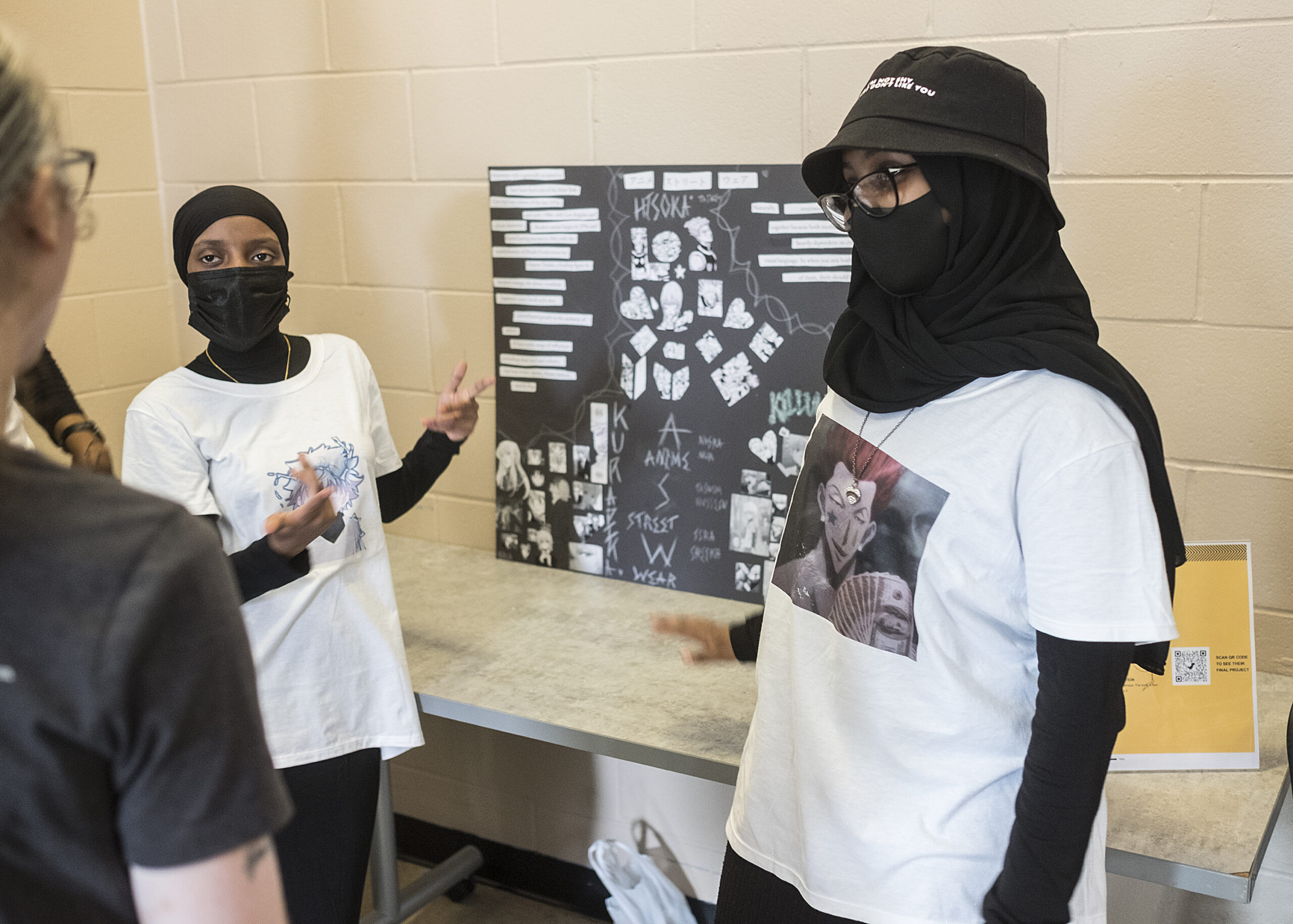
For Pillsbury United Communities, 2021 was a summer to remember! After last year’s summer programs were forced to operate remotely due to COVID-19, we were so pleased to reconnect with our young folks in-person for summer 2021.
This year, 145 young people in middle school and high school completed paid summer internships through Pillsbury United programs—our largest ever class of interns! Our young folks explored new opportunities in technology, business, media production, and more. (For photos from some of our summer activities, take a look at a couple of recent albums on our Facebook page.)
Read on to learn more about our summer internship cohorts—and the dedicated youth program leaders who made it all possible.
Amplified Youth Storytelling at Brian Coyle Center
Our Amplified Youth Storytelling cohort was based out of the Best Buy Teen Tech Center at Brian Coyle Center. Under the guidance of our experienced youth mentors, 16 interns learned audio production and podcasting skills. Special thanks to The Clubhouse Network and the city of Minneapolis’ Step Up program for partnering with us to offer this unique opportunity.
This cohort was led by Emery and Jose. Emery recently completed his term with Public Allies Twin Cities, through which he served as Content Specialist at the Teen Tech Center. Jose also works with our Coyle youth programs as our Pathways Coordinator, helping young people plan for college and a career.
Arts & Agriculture at Waite House
Our Arts & Agriculture youth group at Waite House led 12 interns in exploring the intersections of food, art, culture, and social justice—connecting to the land by working hands-on at our Pillsbury United Farms, and sharing their experience through the visual and performing arts.
Our cohort leaders were Angelica and Ebony—both artists and activists. Angelica is a performance artist who has previously led our youth spoken-word and tutoring groups. Ebony is a visual artist and an alumna of our youth programs, returning to Pillsbury United this summer after graduating from Clark Atlanta University.
Cinematography & Business at Brian Coyle Center
Based out of the Best Buy Teen Tech Center at Brian Coyle Center, our Cinematography & Business cohort provided opportunities for 16 interns to explore filmmaking, editing, scoring, and sound design—while also learning to make a business plan to support their activities as independent artists and creators. The cohort also participated in a site-visit to the Institute of Production and Recording to learn from working professionals in the field of media production.
The cohort was led by Gonkama and Sisco, two youth leaders who are deeply rooted in the Cedar Riverside community. Gonkama is a seasoned youth worker and recent IT grad with experience in hip-hop production. Sisco is a graduate of our Coyle youth programs and a professional filmmaker and photographer.
Cyber Seniors at Brian Coyle Center
This unique cohort focused on intergenerational engagement between young folks and community elders living in Cedar Riverside. Our six youth interns partnered with volunteers from Best Buy to work with Cedar Riverside community elders and assist them with technical support. Through twice-weekly clinics at Currie Park in English, Somali, and Oromo, these young folks stepped up—helping our elders install apps, configure webcams, and other essential tools to stay connected in the post-COVID world.
Our cohort was led by Hassan and Kenya, two very talented undergrads. Hassan joined us this summer after many years of participation in youth programs at Brian Coyle Center. Kenya was brought on through the ServeMinnesota emergency response program.
Girls & Femmes in STEM at Brian Coyle Center
Our Girls & Femmes in STEM cohort at Brian Coyle Center offered a unique eight-week course in a variety of science and technology-related topics, including astronomy, coding, biodiversity, food science, medicine, and digital art. Our cohort members also took part in a biodiversity field trip to Cedar Creek with a University of Minnesota professor, tested the new flight simulator at the Best Buy Teen Center, and participated in Scrubs Camp at Augsburg University.
The cohort was led by Idil and Fardowza, both of whom are studying STEM fields at the University of Minnesota. Idil is a Page Scholar, and she is currently majoring in microbiology and cell biology. Fardowza is a graduate of Sisterhood Boutique, majoring in computer science.
Healthy Living at Waite House
Young folks in our summer Healthy Living cohort at Waite House enjoyed a wide range of activities to support their physical and mental health. This included cycling and bike maintenance with Bici Xicas, a local biking collective; group therapy sessions, in partnership with counselors at Tubman; and tennis at Fred Wells Tennis & Education Center at Fort Snelling.
This cohort was led by Ivonne, a senior at Augsburg University studying political science and an alumna of our youth programs at Pillsbury House + Theatre. Ivonne also managed our 22 off-site interns, including partnerships with Roots for the Home Team and the Minnesota Landscape Arboretum’s Growing Good program.
KRSM Radio
Our biggest cohort of the summer was at KRSM Radio, broadcasting out of Waite House in the Phillips community. Our interns explored on-air hosting, radio DJing, journalism, and audio production in our brand new youth recording studio. KRSM also partnered with ThreeSixty Journalism, MPR News and MIGIZI to plan and engage BIPOC youth for MPR’s Radio Camp. Click here to see some of their finished projects.
Our cohort was led by Michel.Be, a professional DJ, our agency-wide youth media manager, and a longtime alum of our youth programs at Pillsbury House + Theatre. They were supported by Minneapolis Community Education, who offered a full-time staff coordinator to assist with facilitating this summer’s internships—our thanks to KJ for their invaluable assistance!
Sisterhood Boutique
Based out of the Cedar Riverside community, our team at Sisterhood Boutique led a cohort of 24 young women—giving them direct experience in managing a fashion consignment boutique, plus ongoing development of their business and leadership skills. Highlights include a site-visit to local apparel brand sota clothing, as well as a week at Augsburg University Scrubs Camp.
The cohort was led by a trio of long-time Sisterhood Boutique leaders and alumni. Zikki is a co-founder of Sisterhood from its very first class, and Kidist is a former Sisterhood intern; both are now leading programs at Sisterhood. Ugbad is a Sisterhood grad and currently an undergrad in phlebotomy at the U of M—a passion she discovered on a Sisterhood field trip.
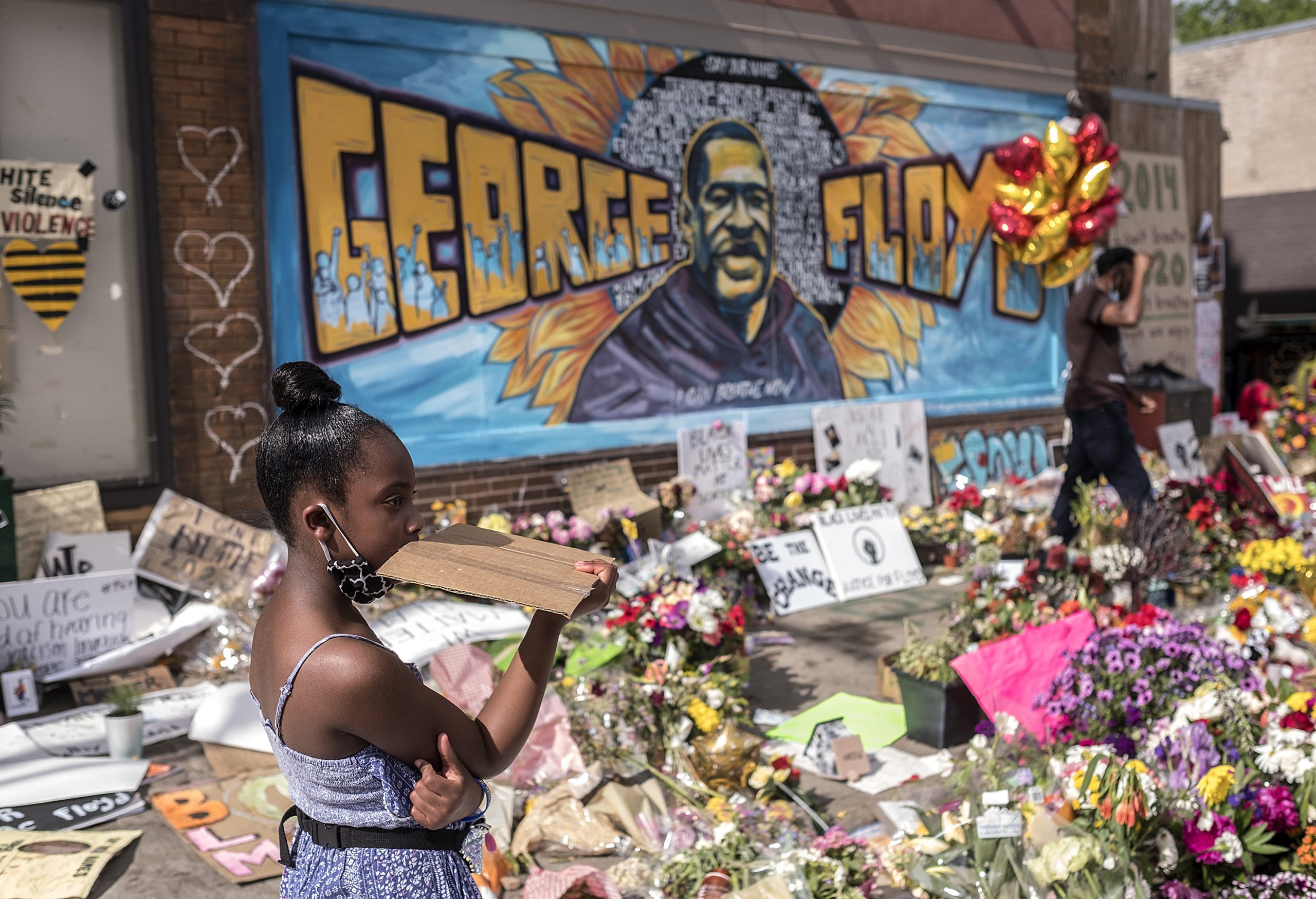
2020 was not normal. Two pandemics bore down on our community, bringing hardship we could hardly have imagined. One was a virus that isolated, sickened, and killed. The other was the plague of systemic racism, embodied in the horrendous murder of George Floyd and the anguished fury it unleashed.
These tragedies shook our community to its core and hit many of us painfully close to home. Some lost livelihoods. Some lost loved ones. Others lost trust in institutions that were supposed to protect them. Many were retraumatized by continued examples of systemic racism.
The pain continues to reverberate. We will be picking up the pieces for years.
Although no one saw the trials of 2020 coming, Pillsbury United was prepared to rise to the moment. Across our agency, staff moved quickly and fearlessly to ease suffering, rebuild, and respond to the crisis with compassion, imagination, and hope.
In 2020, we…
And that’s only a snapshot of the work we accomplished last year. Out of a crisis, a more just society can emerge. This is what justice looks like.
Learn more about the magnitude of our impact in 2020—and the broad community support that made it possible—by viewing our 2020 annual report.
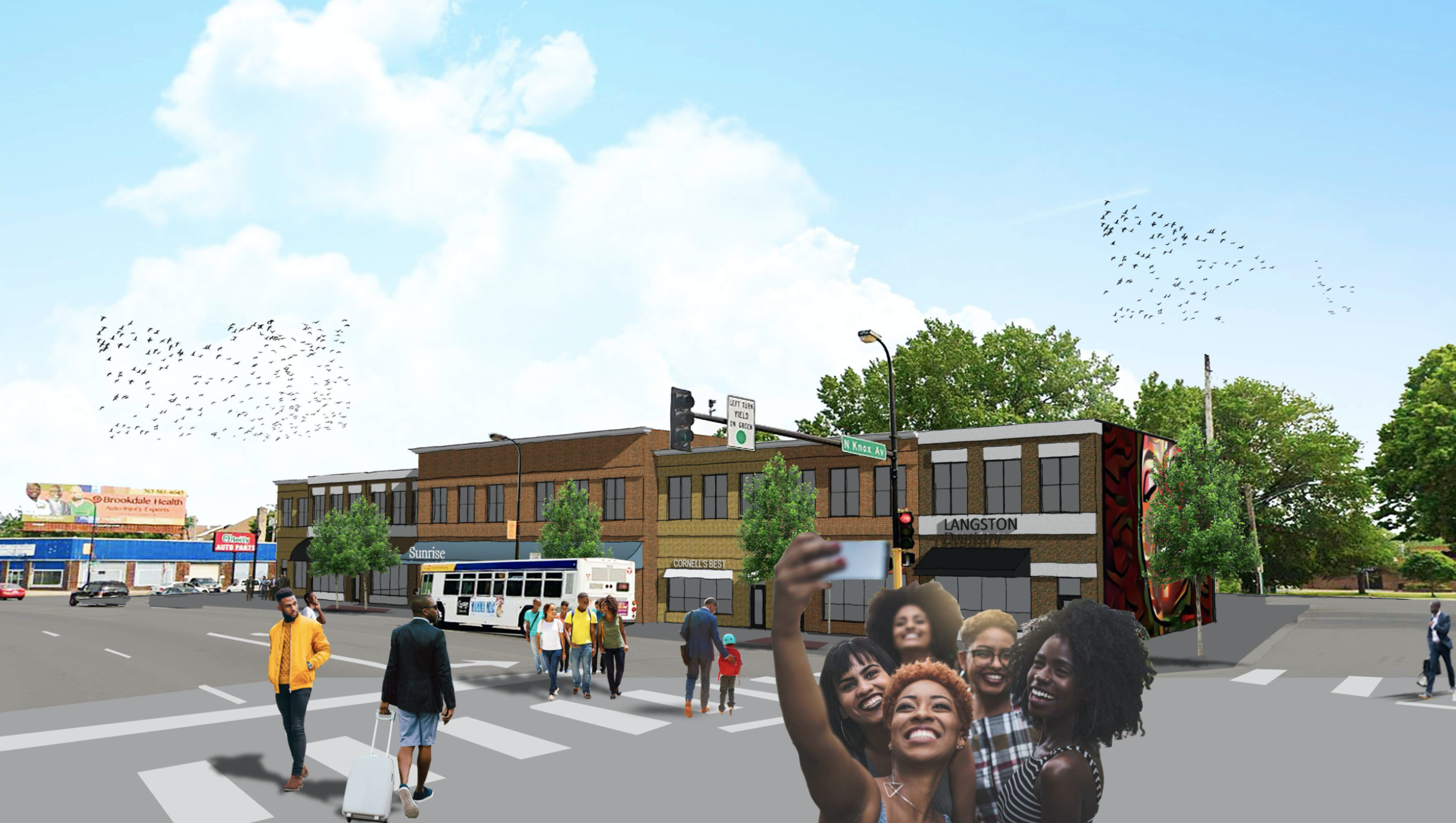
MINNEAPOLIS, Minn. (May 25, 2021) – Pillsbury United Communities (Pillsbury United), an agency with a 140-year legacy of recognizing and amplifying the assets and aspirations of the communities living in historically underinvested neighborhoods across Minneapolis, today announced the launch of the Justice Built Communities (JBC) initiative. JBC will leverage land, labor, entrepreneurship and capital to build equitable economic development for Black residents across the region starting in north Minneapolis. The initiative will be powered by a network of regional and neighborhood partners.
As a first step, JBC will purchase vacant land, buildings, and other disused properties for neighborhood redevelopment. It closed on its first property earlier this month when it purchased the old O’Reilly Auto Parts property at 1601 and 1625 West Broadway along with the adjacent property at 1622 Golden Valley Road, Minneapolis. JBC will use a community-centered design process to inform the redevelopment plans, which will provide opportunities, guidance and financial support to help local, Black-owned enterprises get established and grow. Over time, JBC will bridge land ownership back to local entrepreneurs to build generational wealth.
Pillsbury United has already raised $6 million for the JBC startup fund and intends to raise an additional $14 million through philanthropy and program/mission-related related investments by end of year for acquisition of neglected properties and pre-development capital. Initial investors include US Bank Foundation, Bank of America, GHR Foundation, Margaret A Cargill Fund of the Minneapolis Foundation, Target Foundation, Opus Foundation and Otto Bremer Trust. A variety of innovative financial structures including debt, equity, and NMTC will be used for project-specific development costs.
The initiative’s work will be co-designed and developed through Northside business and neighborhood associations including Folwell Neighborhood Association, Jordan Area Community Council, Hawthorne Neighborhood Council, and West Broadway Business and Area Coalition. Local artists will be engaged to beautify the areas before, during and after projects break ground. As properties are developed, Black entrepreneurs step in and take over: bringing goods and services to local residents, job opportunities to youth and adults, and prosperity to families.
“Our mission is to create a just society where every person has personal, social and economic power,” said Adair Mosley, President & CEO of Pillsbury United Communities. “The disruptive forces of 2020 showed the inequity of a system built on racist policies and practices as well as the need to act with urgency to equitably rebuild. JBC will prioritize strategies that ensure the people who were part of the history of our communities are also part of the future. We envision thriving commercial nodes anchored by local businesses and green spaces, safe and stable neighborhoods, and meaningful work and wealth-building opportunities that close racial disparities.”
Minnesota’s Black residents face the worst economic disparities in the nation. Minnesota ranks at the bottom for racial gaps in high school graduation, homeownership and household income. These inequities have been concentrated on Minneapolis’s Northside by decades of systemic disinvestment.
“Today we see the impact of inequitable development in North Loop, a Northside neighborhood adjacent to downtown,” said Jimmy Loyd who serves as Senior Director of Community Development at Pillsbury United. “While real estate activity in North has largely been stagnant, North Loop has seen $1.2B in real estate sales since 2015. That’s created rapid gentrification on the edges of North, and now this boom encroaches deeper into the neighborhood. As properties along Plymouth Avenue and other major corridors are bought up, vulnerable residents are threatened by displacement as outsiders benefit. JBC aims to reverse this concerning trend and support Northside neighborhoods’ vision for their own future.”
Learn more at justicebuiltcommunities.org.
About Pillsbury United Communities
Pillsbury United builds community by co-creating enduring change toward a just society where every person has personal, social, and economic power. Its united system of programs, neighborhood centers, social enterprises, and partnerships connects individuals and their families across the region. Program areas include community health, food accessibility, family stabilization, creative placemaking, community voice, civic engagement, education, career and future readiness, and economic mobility.
Pillsbury United serves the Black, Brown, Indigenous, immigrant, and working-class residents of Minneapolis striving to build better lives and communities for their families in spite of racism, poverty, and other systemic barriers. Priority neighborhoods include Cedar Riverside, Phillips, and Powderhorn in South Minneapolis and Near North and Webber-Camden in North Minneapolis.
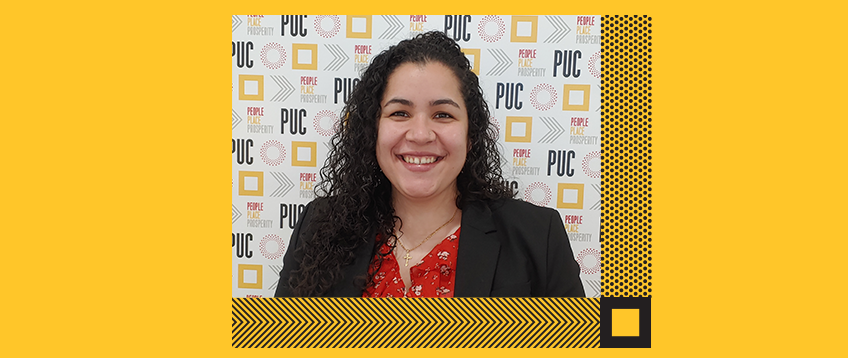
MINNEAPOLIS, Minn. — Pillsbury United Communities has named Samantha Diaz as its new Director of the Office of Public Charter Schools (OPCS).
In this role, Samantha will provide oversight and evaluation for all charter schools authorized by Pillsbury United Communities—supporting the operations, compliance, and efficacy of existing and prospective charters within the Pillsbury United network.
Additionally, Samantha will facilitate the OPCS’ ongoing work of developing a “community of practice” within the charter school sector, deepening best practices around authorizing standards; building awareness of policy shifts impacting the sector; and developing collaborative approaches to achieve the best educational experience for all students.
“Samantha is a fierce advocate for Black and brown children, with a deep commitment to equity and accountability,” said Adair Mosley, President & CEO of Pillsbury United Communities. “Given her immense knowledge of charter schools and policy, she was the ideal candidate to lead the continuing evolution of the OPCS in developing new and pioneering authorizing practices.”
Samantha previously served as Associate Authorizer Liaison for the OPCS and most recently served as the Education Legislation & Policy Director at the Minnesota Council on Latino Affairs. Prior to Samantha’s work in Minnesota, she served as Legislative Director for the Chairman of the Health, Human Services and Senior Citizen Committee in the New Jersey State Legislature. She received her Master’s in Public Administration at Baruch College – Austin W. Marxe School of Public and International Affairs, and a Bachelor’s degree in History at Kean University. Samantha is also an alumni of the National Urban Fellows leadership development program.
The OPCS authorizes 20 public charter schools throughout the state of Minnesota, including sites throughout the Twin Cities Metro, and in Rochester and St. Cloud. These schools are designed so that the children and families whose needs are not being met by traditional public schools have access to relevant education that supports each student’s personal, social, and academic achievement.
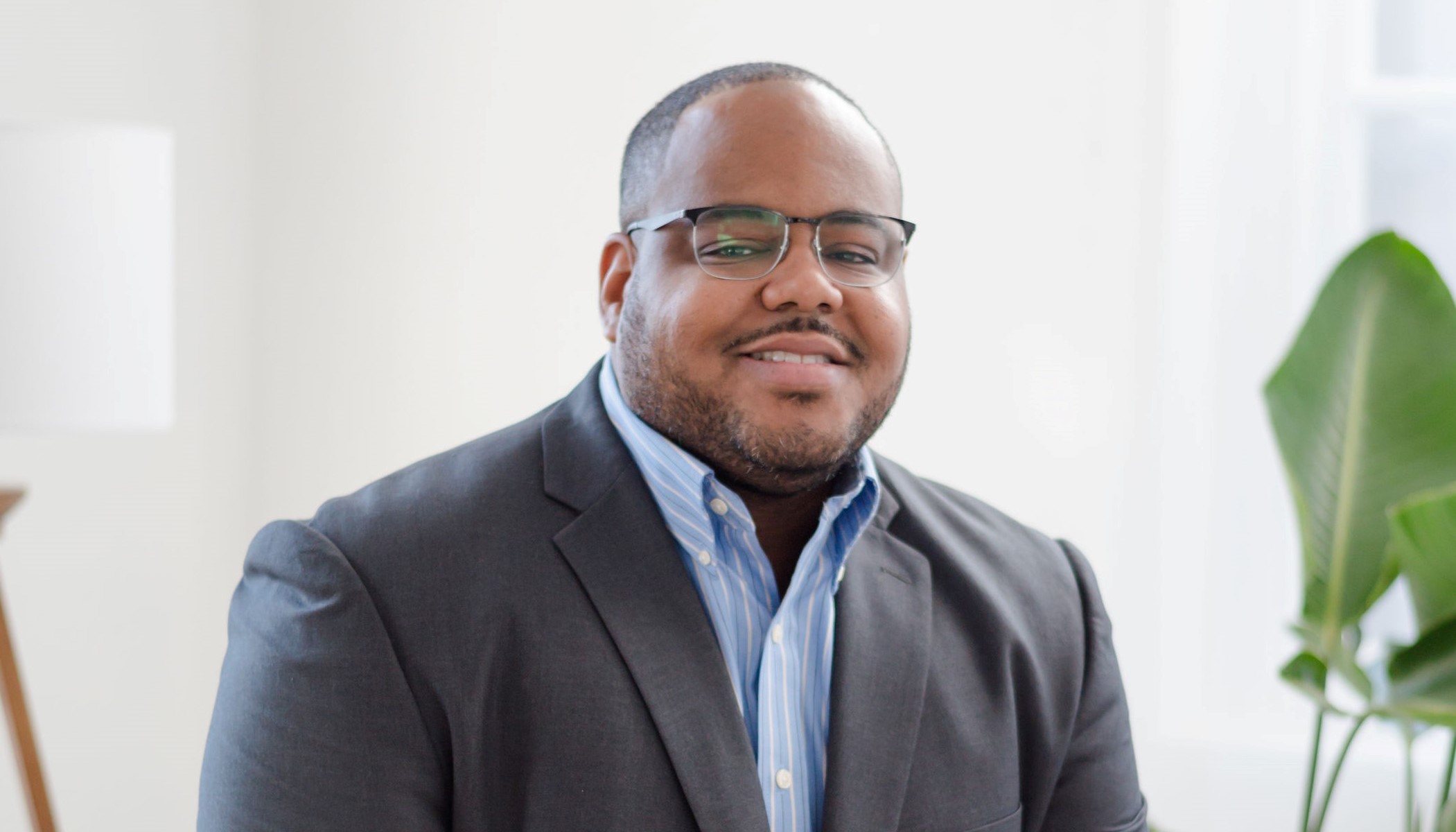
MINNEAPOLIS, Minn. — Pillsbury United Communities has named Jimmy Loyd Director of Community Development for Justice Built Communities (JBC), a community development corporation. The purpose of JBC is to power equitable economic development in the black and brown communities of Minnesota that have experienced decades of disinvestment. To prevent further disenfranchisement of these communities as neighborhoods rebuild after the recent unrest, JBC will operate as community quarterback convening community leaders and local organizations to plan and implement a holistic approach that includes direct support to black and brown entrepreneurs and small businesses.
“Jimmy brings the real estate development and business acumen paired with a deep commitment to racial equity,” said Adair Mosley, President and CEO. “He shares our vision for building thriving communities, centering community’s voice, and we are honored to have him move this initiative forward.”
Jimmy is a graduate of DeVry University and Keller Graduate School of Management. His real estate planning and development experience includes four years with the City of Minneapolis during which time he was recognized for “Excellence in Economic Development” by the International Economic Development Council for the City of Minneapolis B-Tap Program. His experience also includes serving as Small Business Program Manager at Northside Economic Opportunity Network, Real Estate Director at YMCA – Greater Twin Cities, and most recently Economic Development Coordinator for the City of Brooklyn Center.
“I chose to join Pillsbury United because of the organization’s willingness to take bold action,” Loyd said. “I look forward to partnering with other CDCs, neighborhood associations, and business district councils to develop new land-based solutions that benefit the community.”
Justice Built Communities convenes stakeholders across sectors and prioritizes comprehensive approaches to neighborhood revitalization that will prevent gentrification and displacement while driving enterprise development and wealth creation in black and brown communities of greater Minneapolis. More information at justicebuiltcommunities.org.
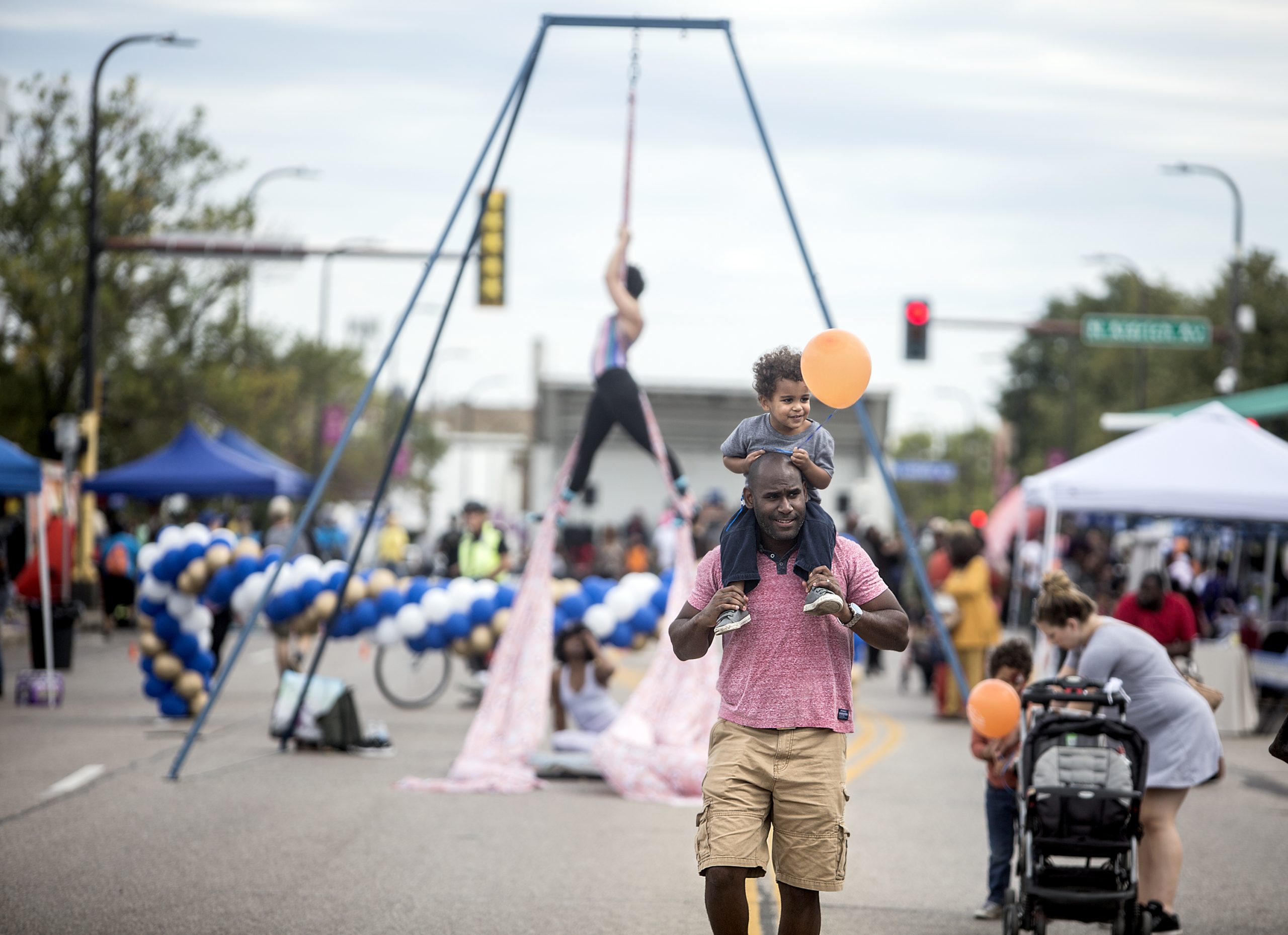
The compounding effects of intersectional oppression are prominently on display right now. We have an uncontrolled pandemic, on top of the longtime public health crisis that is institutionalized racism. Our democracy is under threat. People are unhoused in record numbers. Gaps in wealth, health, and educational outcomes between the haves and have-nots in our communities are widening even further.
Reimagined systems are desperately needed, and Pillsbury United Communities is heeding that call. Through the lens of people, place, and prosperity, our leaders are aggressively advocating for upstream change that will build long term power in our communities. Additionally, our agency has launched a public policy team and a community development corporation to reimagine the structures that govern our day to day lives.
While we use our institutional power to lay a foundation for long-term change, we remain committed to immediate and short-term relief for those who’ve long borne the brunt of our country’s violent and inequitable systems. We must be responsive to the needs of today without settling for them as permanent fixtures of life in our city.
We hope you’ll join us in seeking justice. For advice on where to start, we’ve asked a few of our leaders to share their wisdom.
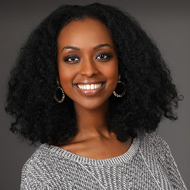
Tsega Tamene
COVID-19 has been a truth teller. It has exposed what was already in plain sight to many of us. Black, Indigenous, and communities of color have experienced the disparate economic, health, and psychosocial impacts of racism well before, starkly during, and very well likely after this pandemic—unless we choose a different world.
We must reimagine, redesign, and transform systems toward health justice. In doing so, we must fundamentally shift how we think, speak, and act about health and health inequities. Namely, we must shift from treating health as a commodity to health as a human right. Shift now by:
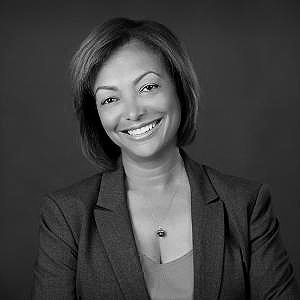
Faye Price
At Pillsbury House + Theatre, we employ roughly 300, mostly-BIPOC artists every year. Those folks, and the entire creative workforce, are extremely economically unstable right now because of the pandemic. This is a workforce that has been decimated like the restaurant industry.
Our artists are often activists who highlight systemic inequities and cast visions for liberation. They are called to do that imagining regardless of compensation. We need them right now more than ever, and many are being asked to do cultural labor unpaid. There is an expectation that they will always be here, but they won’t if we don’t act. Act now by:
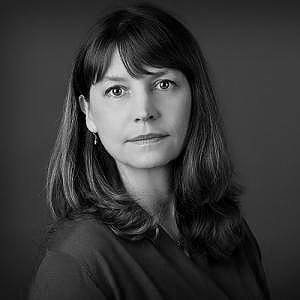
Noel Raymond
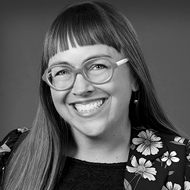
Julie Graves
We have built our systems and models of youth programming to complement school models. For better or worse, we live in the tangled webs of integrated systems. When Minneapolis Public Schools change their offerings, we have to pivot too. With school not returning to the status quo this fall, these structures that we’ve played off of always, don’t exist anymore. We have to figure out new ways of engaging our young people and supporting their families in the process. We have to do so in the midst of so much uncertainty about the future of school day education—this year and beyond.
Funding for youth programming in Minneapolis, particularly K-5, has been decimated in the last decade. Our stressed, barebones system of out-of-school youth programming is now being asked to completely reinvent the way it operates to support entirely new needs. We need to return to a system where every child and family has access to a community center that offers a holistic, integrated model of support—tutoring, entertainment, meals, space to just be together.
Support this work by donating to the chronically underfunded community centers, like Waite House, who provide whole-family support. Advocate for more out of school time youth funding in the 2021 Minneapolis city budget—and the state budget. This is violence prevention work. This is an investment in the future of our city.
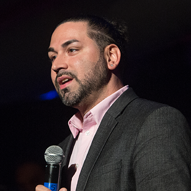
Antonio Cardona
Resources are not scarce. They are inequitably concentrated. If we are serious about reimagined systems, we have to question and tactically change what we value and where we direct resources. In public education, we have a simple, yet fundamental challenge: funding for public education is rooted in property taxes that are a result of decades of purposeful housing and employment discrimination. We need to change this system.
Secondly, just as we have been talking about social determinants of health for the last two decades, there are also social determinants of education. COVID-19 and George Floyd’s murder has laid bare the ways in which the most marginalized are the first effected by societal change. Think of a tsunami. First, the water recedes, exposing the gunk just beyond the shoreline. Then, the water slams that same shoreline, throwing everything into disarray. Those on higher ground are able to escape the worst effects. This exposes what kids and families need in order to grow and learn. Stability, food, housing, health care, family businesses—all of the things that have been decimated during this time.
Take action by supporting and participating in the civic institutions that push population-level work forward; voting; completing your Census; and paying attention to city council meetings, school board meetings, and commission decisions. Support and hold your officials accountable while trying to avoid a descent into unhelpful or uneducated dialogue.
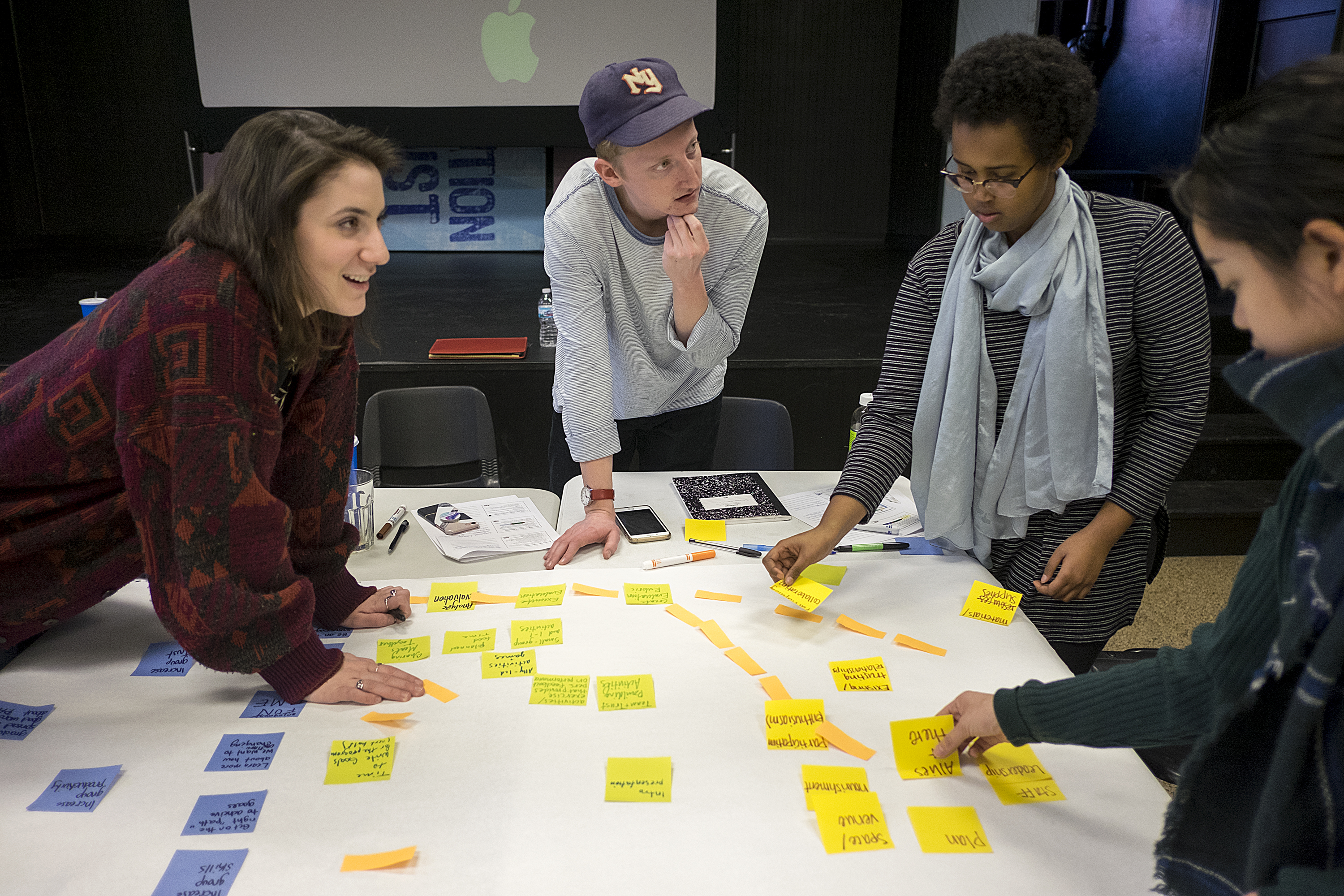
Earlier this month, Twin Cities Public Allies gathered at Oak Park Center to participate in Core Week. Public Allies is a 10-month Americorps apprenticeship program that focuses on advancing social justice and equity by teaching allies about leadership and placing them in key operational roles at a wide range of partner organizations throughout the Twin Cities nonprofit sector. For new and returning allies, Core Week offers the chance to explore the values of the Public Allies program through a variety of culture-building activities that exercise their creativity and empathy. It is a time for allies to connect, reflect, and build.
Ashlyn Stenberg is one of several new Public Allies cohort members; Core Week was her first week with the program. Ashlyn is serving as a communication system specialist at the Wilder Foundation, providing administrative support for a variety of projects focused on racial equity and community outreach. Although she was not sure what to expect with many of the high-energy culture-building activities, she says that by the end of Core Week, “[The experience has] already paid off. I’m seeing the benefit of putting myself out there in these spaces.” Ultimately, Ashlyn hopes that Public Allies can help her develop new opportunities that utilize her interest in health equity issues.
Roda Abda, also new to Public Allies, is serving as an operations manager at Twin Cities RISE, where she is assisting with project management and communications for a major upcoming event. After a period of trying to determine her next steps in life, Roda says that she was encouraged to apply by an acquaintance who had already completed the program. “I hope to become a strong communicator and learn to assert myself during my time as an ally,” she says.
Another new ally, Colton Taylor, was placed at Senior Community Services as a home program coordinator. In this role, his job is to recruit, organize, and manage volunteers who assist seniors with a wide range of day-to-day tasks. Like many young people in the program, Colton is eager to explore different post-college options during his time with Public Allies. “I graduated not knowing exactly what I wanted to do,” he says, “and I’m hoping [Public Allies] can help me get a clearer sense of what my career is going to be.”
Now that Core Week has come to an end, the hard work is only beginning. As our new cohort members begin their 10-month journey with Public Allies, the energy and enthusiasm of Core Week reminds us all that real learning happens when young people feel empowered to break out of their comfort zones.
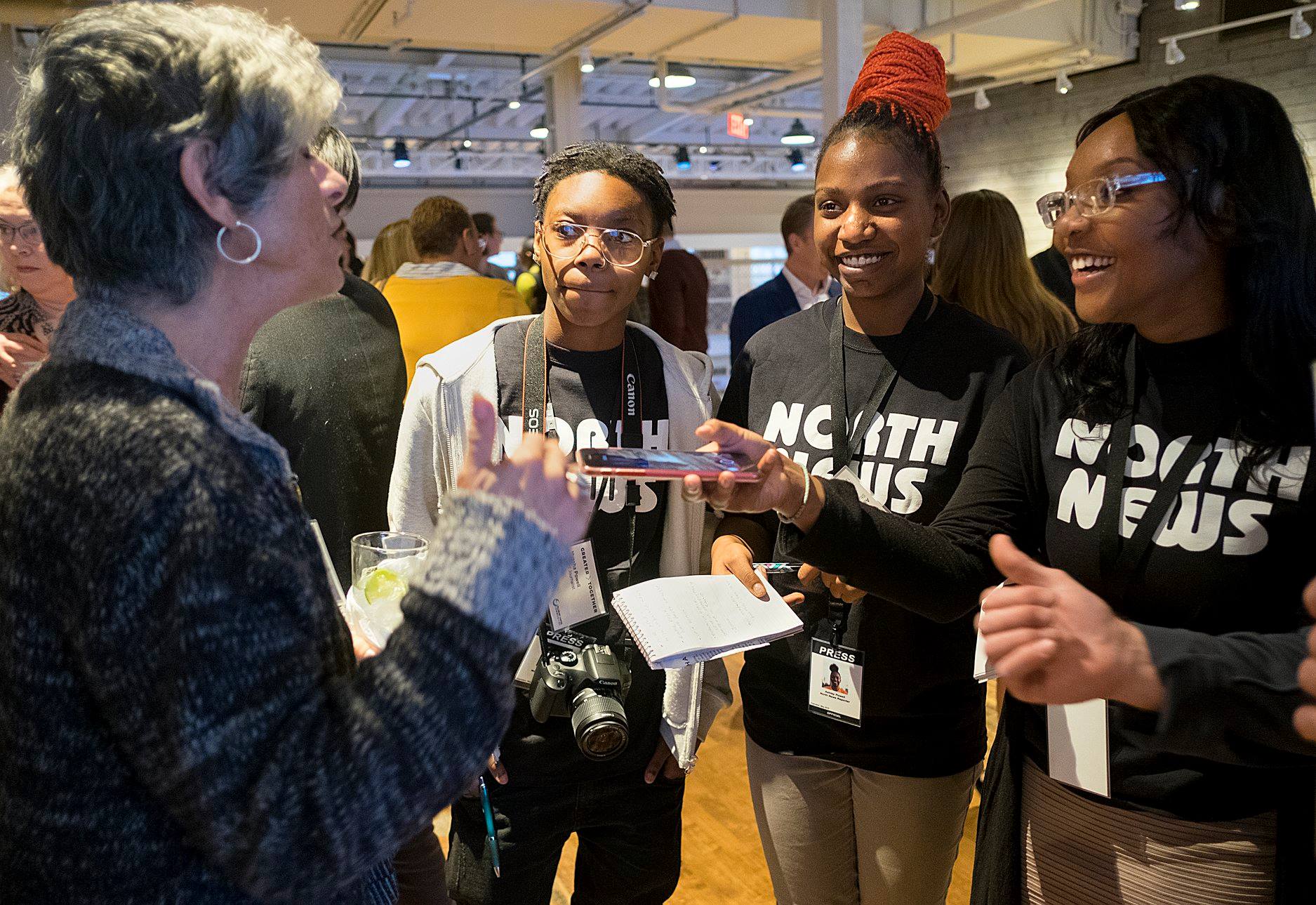
Many residents of North Minneapolis may be aware of North News through its monthly print paper and digital platforms, elevating honest and nuanced narratives about the Northside that aren’t represented in the institutional media. What they may not realize is that in addition to its quality hyperlocal reporting, North News is also working to lift up the next generation of Northside youth voices.
Through classroom programs and internship opportunities overseen by North News staff, youth throughout North Minneapolis are learning to tell their community’s stories and gain experience that will prepare them for careers in mass media and communications. This need is especially critical in the Northside community. “We are the only journalism education program most of our young people have access to,” said Kenzie O’Keefe, editor-in-chief of North News. O’Keefe also co-teaches the North News journalism class at North High School and expects to lead a similar program at Patrick Henry High School later this fall.
“Working under Kenzie and being a proud intern for North News over the last three years taught me the skills I needed to become a great journalist,” said former intern Daija Triplett, currently serving at Pillsbury United Communities through the Public Allies program. After the conclusion of her term, she plans to major in communications and media studies at Stetson University in the spring. “I’ve learned so much about how journalism can help connect people to their neighbors in the community.”
Blessing Kasongoma, currently majoring in communications studies at Augsburg University, concurs: “Interning as a student reporter at North News helped me find myself as a journalist.” But she said the true benefits of the North News youth program are even bigger than that. “As a person, I became bolder when it came to approaching people for an interview. I grew that way. This skill is not just for interviewing, but for everyday life. I learned to be more confident as a person.”
The North News team has high hopes for their youth program over the long-term. “Our plan is to build on our successes, grow the capacity of our newsroom, and keep our news platforms strong,” said O’Keefe. By formalizing additional pathways between North News and the media industry, O’Keefe said, North News can ensure that all young people in North Minneapolis have the tools and resources to pursue a career in mass media. With that crucial support for emerging community voices, she said, “We envision that North Minneapolis will one day be known as the birthplace of nationally respected journalists.”
By cultivating young people’s skills as journalists, writers, and storytellers, North News is making a vital contribution to the Northside community. When everyday people are empowered to raise their voices and influence the narrative, real change can begin.
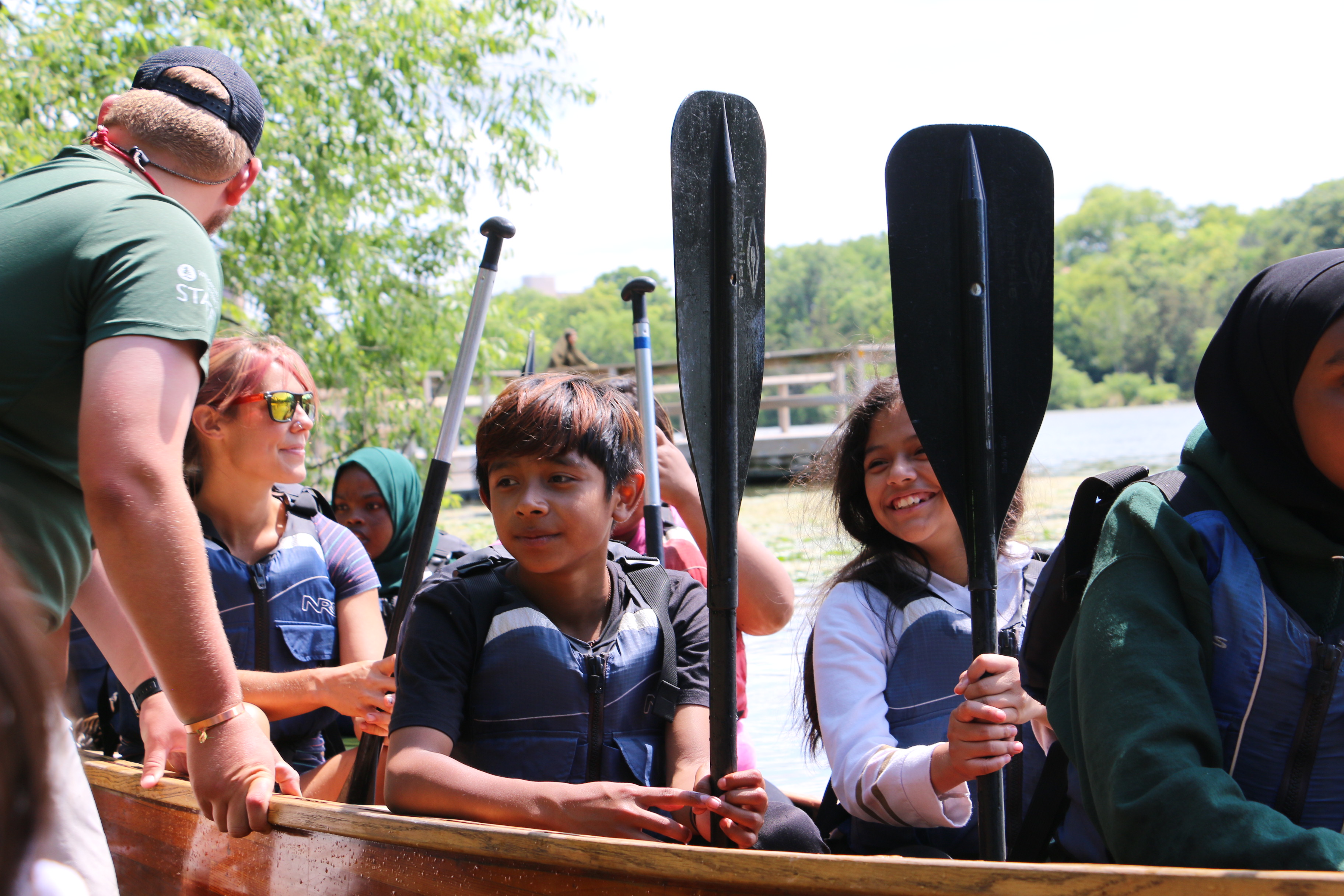
Our youth programs have wrapped up for the summer in what we thought was the most fitting way possible—spending time in the Minnesota outdoors. Knowing that the summer season here is short and filled with all different kinds of opportunities to be outside, we wanted to take advantage of what the natural wonders of this city and state has to offer.
Over the past three weeks, we’ve lead over 80 youth on four different canoeing excursions—two overnight expeditions in the Boundary Waters Canoe Area (BWCA), one overnight trip along the St. Croix River, and one day trip on Minneapolis’ Chain of Lakes. Outdoor expeditions can sometimes be costly and strenuous, but in partnering with the group Wilderness Inquiry, we were able to provide the gear, transportation, and trained guides—all for free.
Maireni, 14, said her favorite part was “Looking at the stars and going to the waterfalls.” And for Luz, 15, it was “Being able to be with nature and talk to new people.” The least favorite part of the experience? The responses were almost unanimous: mosquitos.
While multiple hands-on skills are learned on these trips, from paddling to putting up a tent, making a fire to washing dishes outside—soft skills are strengthened too. Like Baldemar, 14, said, “Teamwork is very vital when you go camping.” Teamwork, communication, and problem-solving skills become necessary when experiencing the outdoors overnight for several days, not always alongside familiar faces, and without the comfortable amenities of home. And without the distraction of phones or other digital devices, youth find their own ways to have fun, whether it be through outdoor games, some good old-fashioned singing, or just taking life a little slower by chatting and building bonds with one another.
Engaging youth in the great outdoors has been a Pillsbury United tradition since the founding of the first settlement houses, and we plan to continue for years to come. Next time, we might just bring some more bug spray.
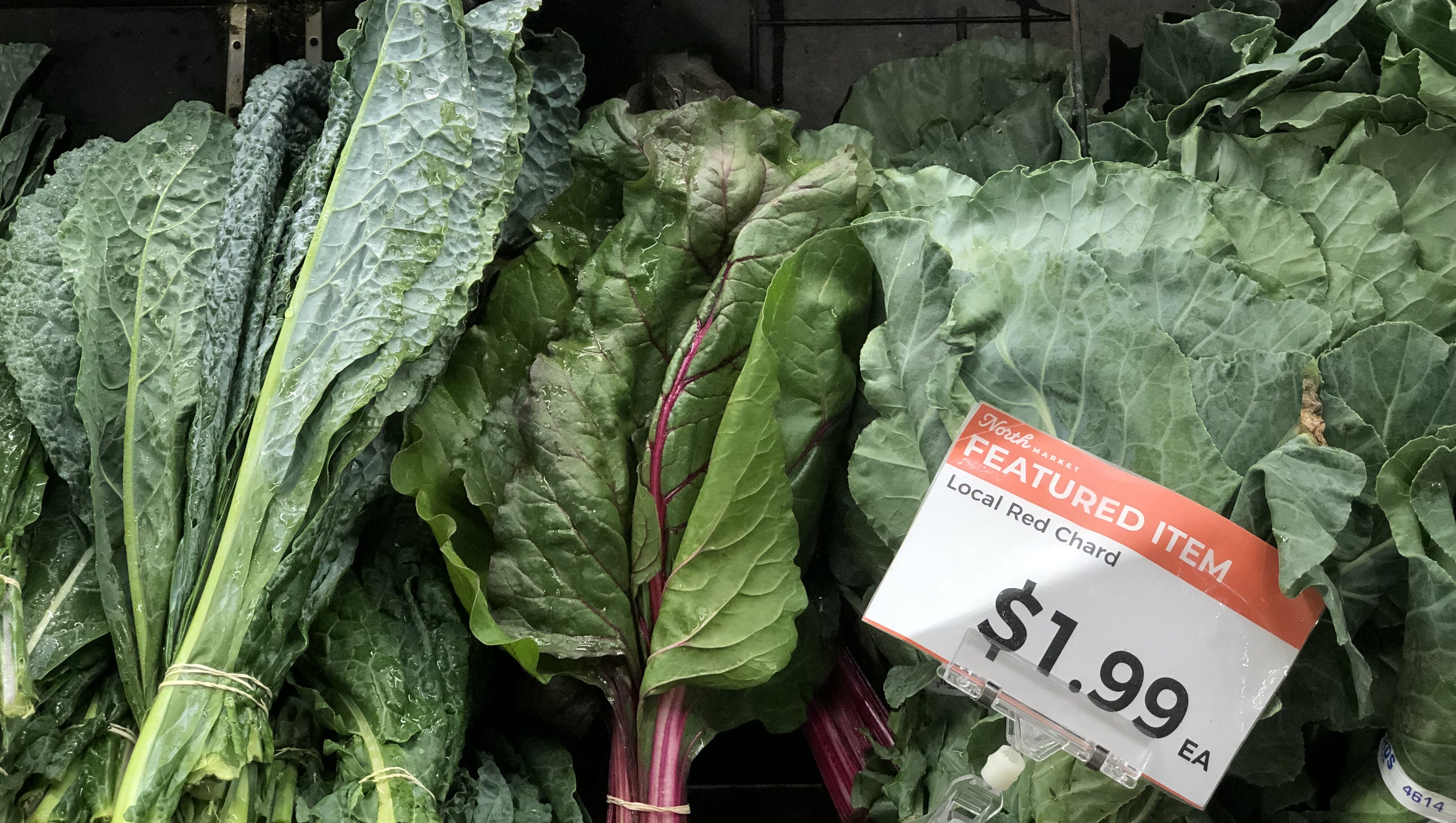
Since they opened their doors in December of 2017, North Market has been working to address food access issues and health disparities in North Minneapolis by uniting three elements in one place: affordable nutritious food, health care services, and wellness education. Staying true to its roots of being built with and for the community, they’ve been purposeful about supporting local entrepreneurs. Right now, you can find products from over 47 local vendors on their shelves. And what’s new this summer? Hyperlocal produce from North Minneapolis farmers. Yep—zucchini, kale, tomatoes, and more picked within just a few blocks.
By purchasing food from local farmers, North Market is able to fulfill its mission of providing affordable healthy food AND acting as an engine for local economic growth. Vanan Murugesan, Director of Design and Innovation at Pillsbury United Communities, said:
“We want to expose the community to the great food businesses that are growing in North Minneapolis and when people buy stuff from the community, it’s keeping the money in the neighborhood. So, we are just a platform for people to connect. On one side we have the customers and on the other we have the farmers and entrepreneurs, and we provide this platform for them to do business. At the end of the day, someone in the neighborhood can enjoy food that was made within 2 miles of where they live and there is something special about that.”
Not only does this mean customers can access produce harvested sometimes as freshly as the same day, but they can simultaneously support a local food system along the way. One of the partners providing vegetables to the store is Growing North Minneapolis, a community-based collaborative that advances environmental, social, and racial justice in North Minneapolis. Patsy Parker, a Community Garden Steward with Growing North, said that “The impact of the sales allows us to start planning for next year. So we can think about, ‘Ok, next year, what kind of seeds do we need? Can we actually buy seeds as opposed to just waiting ‘til the spring and hoping someone can bring them to us?’ Traditionally, North Minneapolis has not had good access to seeds and seedlings. We’re learning what it is that people want and what people need. You know—we need to plant a lot more okra.”
Another source of freshly grown produce is from our Pillsbury United Communities farm at Oak Park Center. Proceeds made from these sales will be reinvested into the larger urban agriculture and food work that we do here at PUC, allowing us to provide more education and technical support to local farmers while having extra funds to help purchase food for our food shelves and community meals—two programs where we’ve seen an increase in need and decrease in philanthropic funding .
All of this to say, it seems to be a win for everyone—customers, farmers, and North Market alike. Customers can spend their dollars on the freshest produce possible from the backyards of North Minneapolis (also a win for the environment). Local growers can increase their economic mobility or continue to fuel urban agriculture work in North Minneapolis from their sales. And North Market can help fill a food access gap by not just providing healthy food to the neighborhood, but being intentional about sourcing from and supporting that neighborhood when possible. Because if we are serious about working to close the disparities in North Minneapolis and Minnesota, then it’s going to require creative, transformative solutions.